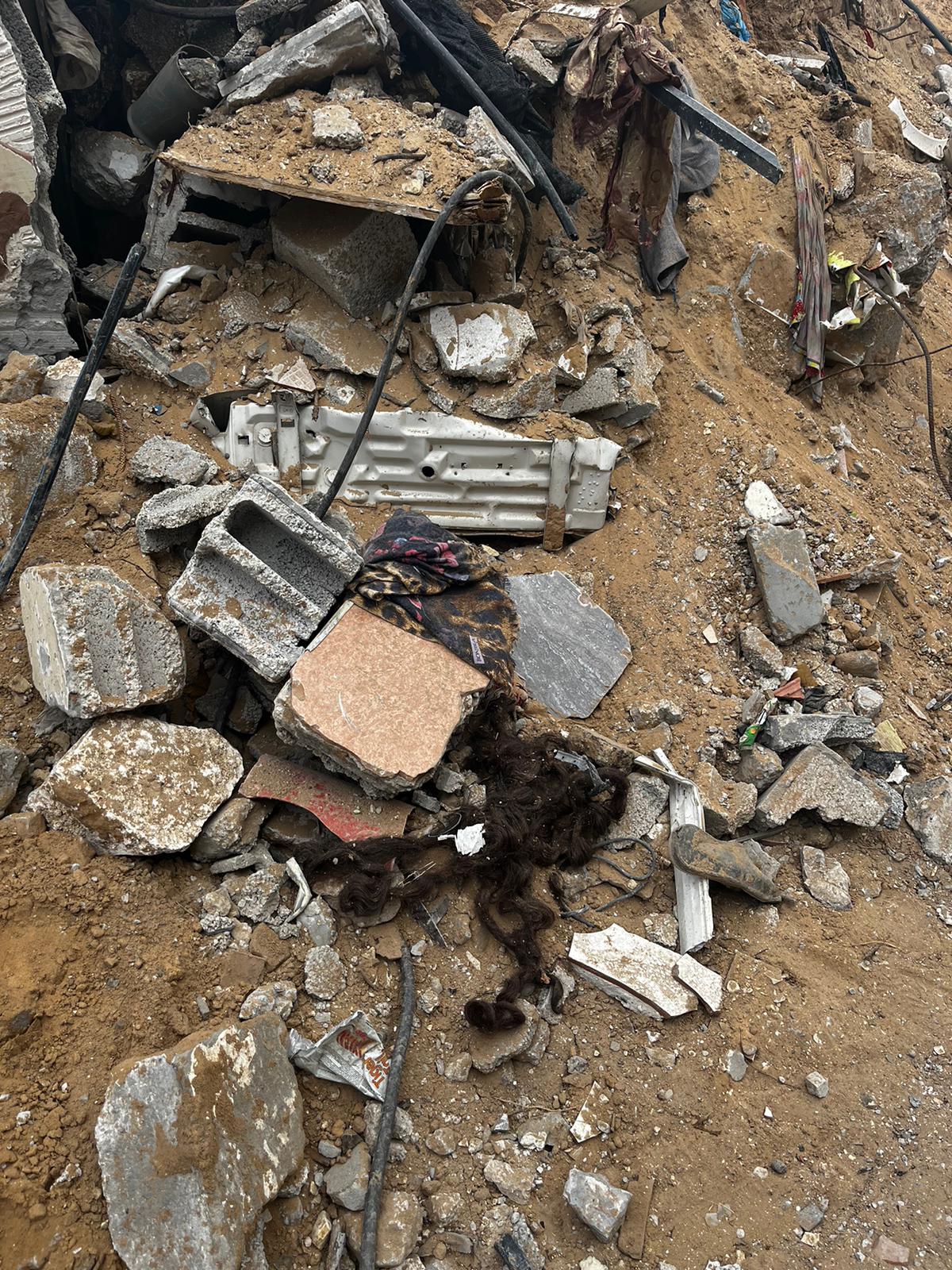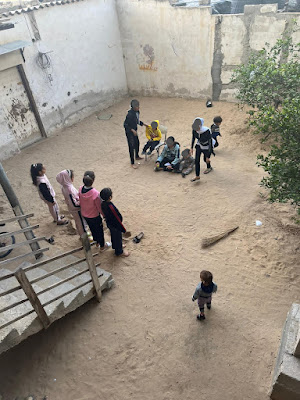What it means to not have access to running water in a war zone
Today is the 17th of November - the 42nd day of the war on Gaza. I’ve decided to start writing a diary about what we face on a daily basis in our lives as people who have been forced to flee from our homes. A lot of people don’t understand what it means not to have electricity, water or access to the internet. Today I’m going to talk about what it’s like not having access to running water. I have to warn you though that there are some details that are disgusting and are hard to speak about because they’re so dehumanizing.
Imagine waking up in the morning and you want to start your day with the normal routine of any human being on earth - by washing your face, brushing your teeth, going to the toilet and washing your hands. Here in Gaza in order to do that we have to make sure we have collected water the day before for all of that. This is what we do.
In Rafah, where I’m now staying as I had to flee from my home in Gaza city, we have a mosque near us which has a well. The mosque is managing a well with a heavy duty water filter. We have access to water for cleaning and flushing the toilet on three days a week and we have access to water that is suitable for drinking and cooking on another three days of the week.
The three-storey building I’m staying in belongs to a family of four sons and their parents. It is hosting three families who have fled their homes. The host family’s daughter has come from Gaza city with her three children. Then there’s me and my father, my brother, his wife and son, and my brother’s in-laws - six people, who are staying down in the basement. There is also another family which is living in a shop belonging in the building. Together we are almost 60 people. My sister was displaced with us from Gaza city but is living in a shop ten minutes drive away from us, with a family of five which we do not know.
There are two bathrooms in the apartment I’m staying in and a total of 10 people staying here. The women sleep in one room together. Five women come up from the basement and sleep in the same room as us. Today I woke up at midnight and needed to go to the bathroom. I was immediately anxious about whether we’d have enough water for me to go. I had to go and get the water from the other bathroom and take it to the bathroom next to where the women sleep at night time. I only had enough water to clean myself and wash my hands. I didn’t have the water to flush the toilet and five people before me didn’t have the water to flush the toilet either. I have to wait 5-6 hours to get water again to flush the toilet.
So far I’ve only spoken about getting water to clean myself and flush the toilet but there’s also my daily work out, which I do to look after my mental health and of course to look after myself in general. So I do this workout and then I go to the bathroom and I have to take a cold shower - it’s winter now so it feels even colder. This happens every day. I use one can (almost half a liter) of water to clean my entire body. We also do the same for my nephew who is only one year and 9 months old.
My nephew’s house in al-Makkousi area - our family house - was ruined. We didn’t know that it was going to be that serious. We came to Rafah with one set of clothes for him to change into. And now we are having to shop for him in Rafah. Whatever my nephew and our family owned in that house has all gone to rubble.
I don’t ask our host family for coffee or tea. They give us coffee in the morning but we feel very shy to ask them for anything - this is not our home and we don’t want our host family to feel that we are any kind of burden on them. Our host family is putting a lot of effort into looking after us - it’s part of traditional Arabic culture to serve your guests - but this is hard for me because I don’t want to feel like a burden. Having lived through several wars before, I try to move as much as possible. I go to the kitchen and make food, I try to cook for other host families as well. But according to Arabic traditional customs, which I don’t apply by the way because I want my guests to feel free, we are not supposed to do anything as ‘guests’. And so our host family is putting in so much effort - they go twice a day to get water - it’s around 16 liters at a time which is around 15 kg.
So they do a lot - this water is used for washing the dishes, washing the floors. We try to minimize the use of water as much as possible. We wait as long as possible to clean and then we only use the water when it’s really necessary.
The mosque only opens at certain times for the population in Rafah to collect water and so sometimes we also bring water from a nearby hospital. This hospital is further away from us but they always have sweet water or salty water available.
Sometimes we go shopping for food for the children or us - we know it’s risky and and we see horrific sights. The other day I had to go out and I saw a human skull on the side of the road. I took this photo. You can see the hair - maybe there’s a body underneath the rubble. It was very difficult to see this but this is the reality of what we’re facing.

"I took this photo. You can see the hair. Maybe
there's a body underneath the rubble."

there's a body underneath the rubble."

Comments
Post a Comment